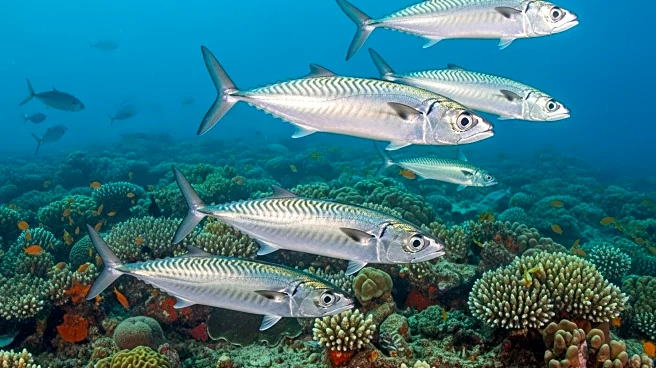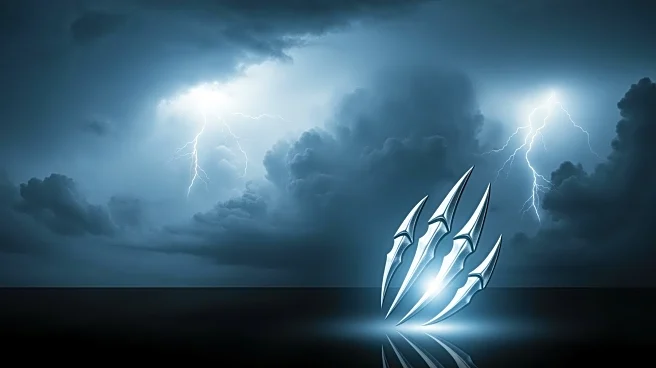What is the story about?
What's Happening?
Scientists have advised a significant reduction in mackerel fishing in the north-east Atlantic to prevent the collapse of fish stocks. The International Council for Exploration of the Sea (ICES) has recommended a catch limit of 174,357 tonnes for 2026, a drastic cut from the estimated 755,143 tonnes expected to be caught by the end of 2025. Overfishing has led to depleting mackerel stocks, and ICES warns of long-term risks to the species and the fishing industry if countries do not adhere to these limits. Despite existing management measures, enforcement remains insufficient, and there is a lack of a unified management plan among countries.
Why It's Important?
The recommended reduction in mackerel fishing is crucial for the sustainability of the species and the fishing industry. Mackerel is a significant part of the marine ecosystem and a vital resource for the fishing industry in the north-east Atlantic. Overfishing not only threatens the species but also the livelihoods of those dependent on fishing. The Marine Conservation Society has already downgraded mackerel in its sustainable fish guide, indicating the pressure on the species. If countries do not comply with the recommended catch limits, it could lead to a collapse of mackerel stocks, affecting the economy and food security.
What's Next?
Countries involved in mackerel fishing in the north-east Atlantic will need to negotiate and agree on catch limits that align with scientific recommendations. This will require overcoming political deadlock and prioritizing long-term sustainability over short-term gains. Conservationists and organizations like the Marine Stewardship Council will likely continue to advocate for stricter enforcement and a unified management plan to ensure compliance with the recommended limits.


















